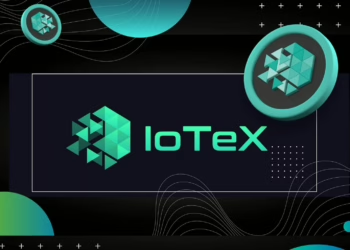The U.S. House Committee on Financial Services has taken a major step toward comprehensive digital asset regulation, voting 32-19 to advance the Digital Asset Market Clarity (CLARITY) Act to the full House floor for consideration.
The bipartisan move follows an earlier 47-6 approval by the House Agriculture Committee, signalling growing momentum behind establishing a formal regulatory framework for the crypto industry.
🚨The CLARITY Act is heading to the House Floor. @RepFrenchHill @RepBryanSteil pic.twitter.com/vI21f5D3WN
— Financial Services GOP (@FinancialCmte) June 11, 2025
Backed by Representative French Hill, the bill aims to clarify the roles of the Securities and Exchange Commission (SEC) and the Commodity Futures Trading Commission (CFTC) in overseeing digital assets. It outlines provisional CFTC registration standards for entities such as crypto exchanges, brokers, dealers, and digital commodity platforms, while introducing strict requirements around disclosures, recordkeeping, and safeguarding customer assets.
“This legislation lays the foundation for a fair, functional, and forward-looking framework that reflects the evolving realities of the Web3 economy,”
Hill said, emphasizing that the bill is designed to regulate all participants in the digital asset ecosystem.
The bill also enshrines key user rights, including the freedom to use non-custodial wallets and engage in peer-to-peer transactions—elements that have become foundational to decentralized finance (DeFi).
Bryan Steil, chair of the Financial Services Committee’s Crypto Subcommittee and a driving force behind the legislation, hailed the development as a “big step forward.” He previously played a major role in advancing stablecoin legislation through the House.
Hill recently added an amendment addressing the status of blockchain developers and service providers, exempting certain non-controlling actors from being classified as “money transmitters” under federal law.
However, not all lawmakers are in alignment. Representative Maxine Waters, the committee’s ranking member, introduced an amendment seeking to include safeguards against possible conflicts of interest, raising concerns that President Donald Trump could exploit the legislation for personal financial gain.
Meanwhile, the U.S. Senate has taken a significant step toward stablecoin regulation, advancing the long-debated Guiding and Establishing National Innovation for U.S. Stablecoins (GENIUS) Act following a pivotal 66–32 vote on May 19.
If you want to read more news articles like this, visit DeFi Planet and follow us on Twitter, LinkedIn, Facebook, Instagram, and CoinMarketCap Community.
“Take control of your crypto portfolio with MARKETS PRO, DeFi Planet’s suite of analytics tools.”




















